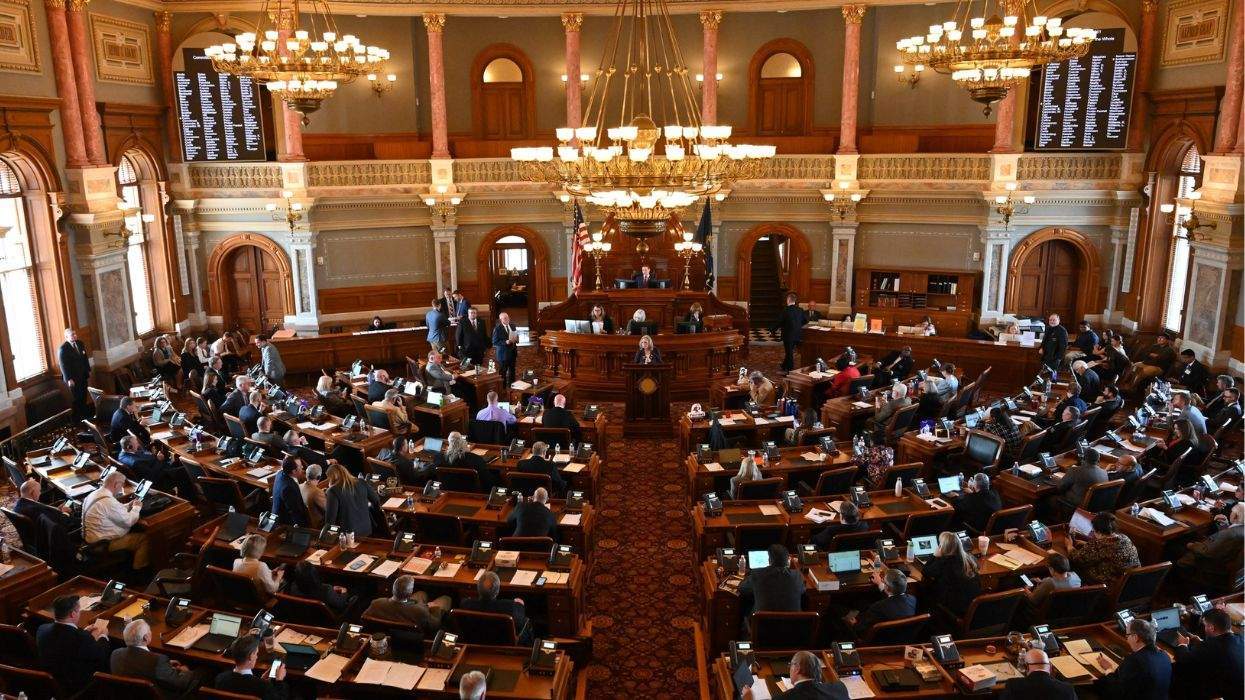American Idol, for all its success, is not above tinkering -- especially after last year's revolving door of celebrity mentors and Sanjaya Malakar's improbable run.
Not too much tinkering, though. Why mess with a trusty formula?
The Fox ratings superpower returns for its seventh season on Tuesday and will doubtless dominate January through May as it did last year and the year before that. It could even attract a bigger audience in 2008, thanks to the Hollywood writers' strike.
But Nigel Lythgoe, an executive producer for the show, downplayed speculation that the lack of alternative programming as a result of the strike could equal more viewers for Idol.
''Everyone is sort of saying that there isn't anything else on television to watch,'' Lythgoe told the Associated Press. "But the other networks are so intimidated by the most-watched show on American television that ''they don't really schedule anything around Idol anyway."
American Idol has reached a plateau in the ratings, down only 1% from 2006 (30.7 million average viewers) to 2007 (30.4 million). The finale with winner Jordin Sparks was seen by 31.2 million, according to Nielsen Media Research.
That fell below the 2006 season-ender, which drew 36.6 million viewers watching Taylor Hicks claim the title in an unpredictable matchup with Katharine McPhee.
Lythgoe acknowledged that the show suffered last year when finalists failed to top the excitement and star quality of performers from previous seasons; on the other hand, he said producers erred by giving too much air time to famous mentors like Jennifer Lopez with individual projects to promote rather than delving deep into contestants' backstories to foster a stronger connection with viewers.
''We felt as though we made mistakes last year with not really pushing and introducing the talent as well as we have done in the past,'' he said. ''In the past, we knew about [season 5 also-ran] Kellie Pickler. We knew about her dad going to prison. We knew about her mom leaving [the country singer when she was a toddler].''
(Blake Lewis, we hardly knew ye.)
This time around, the show will redirect attention to the finalists and bring back alums such as McPhee and season 2 winner Ruben Studdard during results shows to keep fans abreast of what they're up to, Lythgoe said. There will be a new set to spice up a tried-and-true format.
''The most important thing is the show has got to look better,'' Simon Cowell said during a recent telephone news conference. ''It's got to be more fun as a show, and if it is, I think more people will watch. I think it absolutely comes down to the content of what we provide the viewers.''
The new season kicks off with two-hour episodes airing 8-10 p.m. EST Tuesday and Wednesday and featuring auditions in Philadelphia and Dallas, respectively. Another tweak: Idol wannabes were allowed to play instruments during tryouts.
Of course, the voice is what matters most -- and charisma, the reason the vocally challenged Sanjayas of the world advance further than they otherwise should. But charisma doesn't always translate to commercial success after the contest crowns its final winner.
Hicks, Studdard, and McPhee have lost record deals with Sony-BMG, which automatically signs the show's singers. Hicks's self-titled post-Idol album has sold a respectable 699,000 copies, according to Nielsen SoundScan, but it did not reach the 1 million mark surpassed by debuts from previous Idol champs. Studdard's second album, 2006's The Return, has sold only 236,000 copies.
Sparks's freshman disc has sold 425,000 units since its November release, and has spawned a hit single with ''Tattoo.''
Meanwhile, multiplatinum Idol veterans such as Kelly Clarkson, Carrie Underwood, and Chris Daughtry -- who laughed all the way to the top of the charts after finishing fourth to Hicks -- can be heard on the radio at any given moment of the day.
Cowell said the lackluster sales by Hicks and Studdard reflect the unpredictability of the record industry. Lythgoe said they have nothing to do with success of the program itself.
''I don't think we should ever confuse the record-buying market with the television-viewing market,'' Lythgoe said. ''And just because the records aren't selling doesn't mean to say that American Idol the television program is now going to slip from the ratings.''
Daughtry, who has sold 3.6 million copies of his debut album, disagrees.
''It's in a state of decline, and if they don't do something about it, it's probably not gonna last too much longer,'' he said in an interview posted Monday on Rolling Stone magazine's website.
Though the stretched-out audition process, with its terrible singers, delivers excellent ratings, Daughtry said he wished the show would give more screen time to people with talent.
''It's funny at first, but come on,'' he said. ''They spend three weeks on people that can't sing, and that's what they're banking it on. [They should] find some people that you can really invest in.''
At least one loyal fan thinks the cultural phenomenon loses some of its magic when winners don't live up to the Idol title.
''The TV show -- in order to remain exciting to us as viewers -- does have to produce hits, does have to produce winners,'' said Michael Slezak, who blogs about the show for Entertainment Weekly magazine's website. ''Because if nothing is at stake, then it becomes just another reality show. You know, America's Top Model, they are not actually producing America's top model.''
As for the writers' strike, Slezak said he thinks Idol could be an oasis for displaced viewers forced to anticipate such new offerings as American Gladiators and Cashmere Mafia.
''Everyone's going to have to at least come back and sample the show and see how it's doing, and I think if they've addressed [past] mistakes, we're probably going to see a pretty popular year,'' he said. (Erin Carlson, AP)















